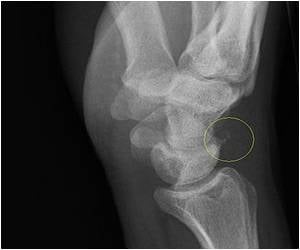Researchers have used genetic mapping to explain how the human immune system is programmed to respond to Staphylococcus aureus infections.
Researchers have used genetic mapping to explain how the human immune system is programmed to respond to Staphylococcus aureus infections.
Infectious disease specialists at UT Southwestern Medical Center have mapped the gene profiles of children with severe S. aureus infections, to see how the pathogen alters the human immune system.The findings of the study could open new doors for improved therapeutic interventions. It has long been unknown how the host's immune system responded to S. aureus infection, and why some individuals are more vulnerable towards severe staphylococcal infections than others.
"The beauty of our study is that we were able to use existing technology to understand in a real clinical setting what's going on in actual humans, not models, not cells, not mice, but humans. We have provided the first description of a pattern of response within an individual's immune system that is very consistent, very reproducible and very intense," said Dr. Monica Ardura, lead author of the study.
The immune system consists of two components, the innate system, which provides immediate defense against infection, and the adaptive system, whose memory cells are called into action to fight off subsequent infections.
During the study, the researchers extracted ribonucleic acid from a drop of blood, and placed it on a special gene chip called a microarray, which probes the entire human genome to determine which genes are turned on or off.
It was found that in children with invasive staphylococcal infections, the genes involved in the body's innate immune response are overactivated while those associated with the adaptive immune system are suppressed.
Advertisement
The researchers used blood samples collected between 2001 and 2005 from 77 children, 53 hospitalized at Children's Medical Center Dallas with invasive S. aureus infections and 24 controls.
Advertisement
The researchers are now hoping to understand better how various staph-infection therapies affect treatment.
The study is available online in PLoS One, the Public Library of Science's online journal.
Source-ANI
ARU










